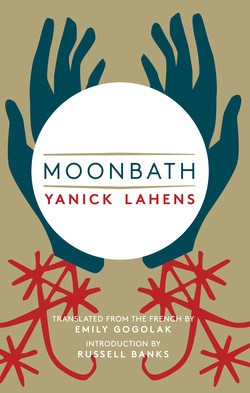Читать книгу Moonbath - Yanick Lahens - Страница 10
На сайте Литреса книга снята с продажи.
Оглавление3.
Tertulien, taking the reins of his beautiful ash-gray horse, leaned over to caress its mane again. But all of a sudden, not being able to stand it any longer, he clapped his hands in one quick, brusque motion, toward Olmène. The sound echoed in all of our ears like a whip. Olmène Dorival did not think the command was meant for her. Neither did we. She had, like all of us, sometimes noticed this rider in the dust of the streets or on the Frétillons’ porch, next to the big general store, in Baudelet. But she had done nothing but notice him, with due distance. He belonged to the others—the victors, the rich, the conquerors—not to the conquered, the defeated, like her. Like us. Poor like salt, maléré, ill-fated.
Olmène turned around but all she saw behind her were Man Came the elderly medicinal herb vendor, Altéma the amputee sleeping right on the floor, and a young man holding a donkey’s bridle. She understood that she alone had to face the gaze of this man, the mere mention of whom cast a dark shadow over the eyes of her father, Orvil Clémestal, and made his mouth swell with a dense saliva, which he spat out in a thick stream into the dust. She told herself that she would pretend to have seen nothing. Heard nothing. She lowered her head softly and pushed her disorderly braids back beneath her scarf. Then she played at arranging whatever fish—sardines, kingfish, parrot fish—her father and brother had caught the previous day, laying out the sweet potatoes, yuccas, red beans, and millet in the basket that she and Ermancia, her mother, had placed on the ground. Raising her head, she took a long look at the man on the horse. He started to want everything: her wrists, her mouth, her breasts, her flower, and her spring. And, while she scanned every trait of Tertulien Mésidor’s face behind the smoky circles that rose from his pipe, Ermancia finished laying out everything she had brought with her daughter from her jardin.*
One of the two riders following Tertulien approached Olmène and pointed to his master. Tertulien took off his hat and, with a fixed grin that was at once a smile and a threat, asked Olmène to sell him some fish. He bought everything. He who, by several accounts, stopped eating fish long ago. Ever since a kingfish in quick-broth had nearly killed him some years earlier. But that day Tertulien would have bought anything and everything. That’s what he did. He didn’t haggle as he usually did over prices, and he paid the fisherman and farmers their due. He bought Ermancia’s millet, sweet potatoes, red beans, and yuccas, which the two other riders hauled behind their horses.
Like all of us, Olmène had occasionally seen a truck, or some horses or donkeys, reeling under the weight of all sorts of goods, crossing the salty lands, forking behind the Mayonne River in the distance and climbing the bridge until disappearing in the direction of Tertulien Mésidor’s silent estate. Like all of us, she imagined, without saying a word and with a mixture of curiosity and envy, what these cargoes could be hiding. Whatever she did or didn’t know, it was beyond what she could possibly imagine. Beyond what we, too, could even dream up. And if a smile twisted our lips or exposed our toothless gums in those moments, it was impossible, for her and us alike, to not blame the world for just a few seconds. To not blame those who resemble us as two drops of water do each other, to not take it out on the Mésidors and their kind. The maids, who once a week braved the trip to the market in Ti Pistache, Roseaux, or Baudelet, sometimes said things that piqued our curiosity for that world. A world that we, the men and women of Anse Bleue and all the surrounding towns and villages, nonetheless avoided. With a determination matching that with which the Mésidors kept us at a distance.
A game that chained us all to the Mésidors and that shackled them to us despite themselves. A game that we, victors and captives, had mastered long ago. Very long ago.
An ancient story entangled the Mésidors, the wind, the earth, the water, and us. But this is not some story about the origins of the world or the mists of time.
Just a story about men when the gods had just barely stepped away…When the sea and the wind still hissed in whispers or wailed their names of foam, fire, and dust at the top of their lungs. When the waters traced a straight line at the edge of the sky and blinded us with the blueish glow. And when the sun levitated like a gift or crushed like destiny.
A story of tumults and very ordinary events. Sometimes of furors and hungers. At times, of blood and silence.
And sometimes of pure joy. So pure…
A story where a new world already straddles the old one. In fits and starts, like you might say about the gods when they straddle a chrétien-vivant…*
Such it was that, on this dawning day in Ti Pistache, not far from Anse Bleue, a village of rock, salt, and water nestled at the feet of the high mountains of Haiti, Tertulien Mésidor, master of his estate, was shaken to his core by the sight of Olmène Dorival, the peasant girl nonchalantly crouched on her heels, facing a basket of fish, vegetables, and provisions at a distant market in the countryside.
